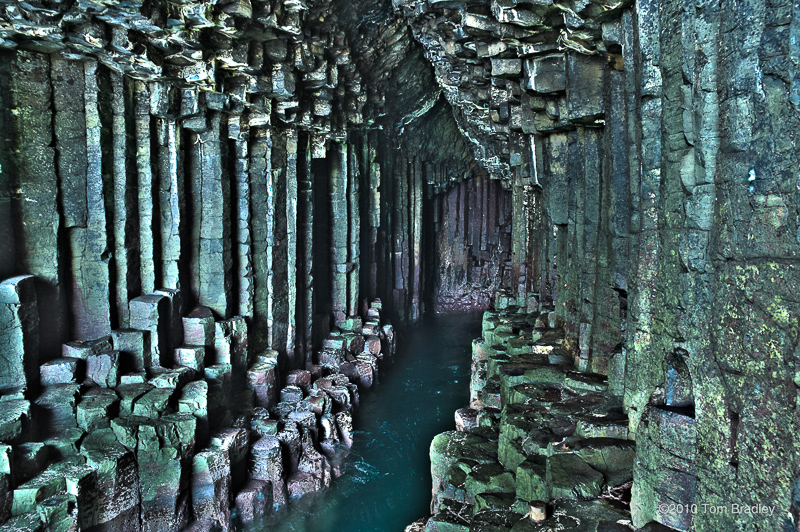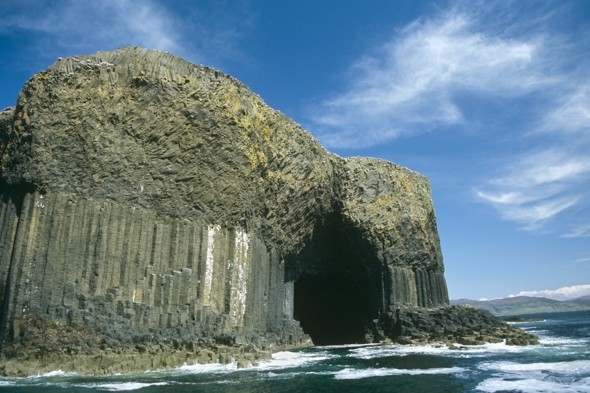
FINGAL'S CAVE.
IN the Atlantic Ocean, off the northwest coast of Scotland, is a small island known as the Isle of Staffa. It is one of the group of islands called the Hebrides, but it is such a rocky, barren place that no one lives there.
In the hard basaltic rock of which the island is composed, are numerous strange caves, which give to the place its only interest. The most remarkable of these is Fingal's Cave, of which we have a representation in our picture. This opens into the rugged coast of the island with a noble gateway, the height of which, from the rocky floor to the top of the arch, is 177 feet, and the breadth nearly 54 feet. The depth of the cave from the entrance to the farther end is 227 feet, and for the whole distance the sides are supported by massive columns of rock, of different forms and sizes, many of them being from two to four feet in diameter.
From the roof of the cavern hang numerous whitened stalactites, sparkling with crystals.
The sea at all times flows into the cave, covering the rocky floor, at the entrance, to the depth of eighteen or twenty feet, but the water becomes shallower as you go in, until at the farther end it is not more than eight or nine feet deep. The action of the waves has broken many of the columns near the entrance of the cavern. The whole cave is lighted from without, so that it is easy to see the entire length of it. People often go in there in boats, and they say the air is dry and wholesome, and not at all damp and foul, as it is in many caves. It must be grand and solemn to float away into this great natural cathedral, with its innumerable pillars, its vaulted roof, whose beautiful lights of purple and gold are reflected in the water; and to listen to the waves surging always in deep and measured tones against the rocky sides. It is to this cave that the poet Scott refers in his
"Lord of the Isles", when he says :—
"The shores of Mull on the eastward lay,
And Ulva dark, and Colonsay,
And all the groups of islets gay
That guard famed Staffa round.
Then all unknown its columns rose,
Where dark and undisturbed repose
The cormorant had found,
And the shy seal had quiet home,
And welter'd in that wondrous dome,
Where, as to shame the temples deck'd
By skill of earthly architect,
Nature herself, it seem'd, would raise
A Minster to her Maker's praise!
Not for a meaner use ascend
Her columns, or her arches bend;
Nor of a theme less solemn tells
That mighty surge that ebbs and swells,
And still between each awful pause
From the high vault an answer draws,
In varied tone prolong'd and high,
That mocks the organ's melody."
E. B.
TAKE your stand on the Rock of Ages. Let death, let the Judgment come: the victory is yours through Him.
